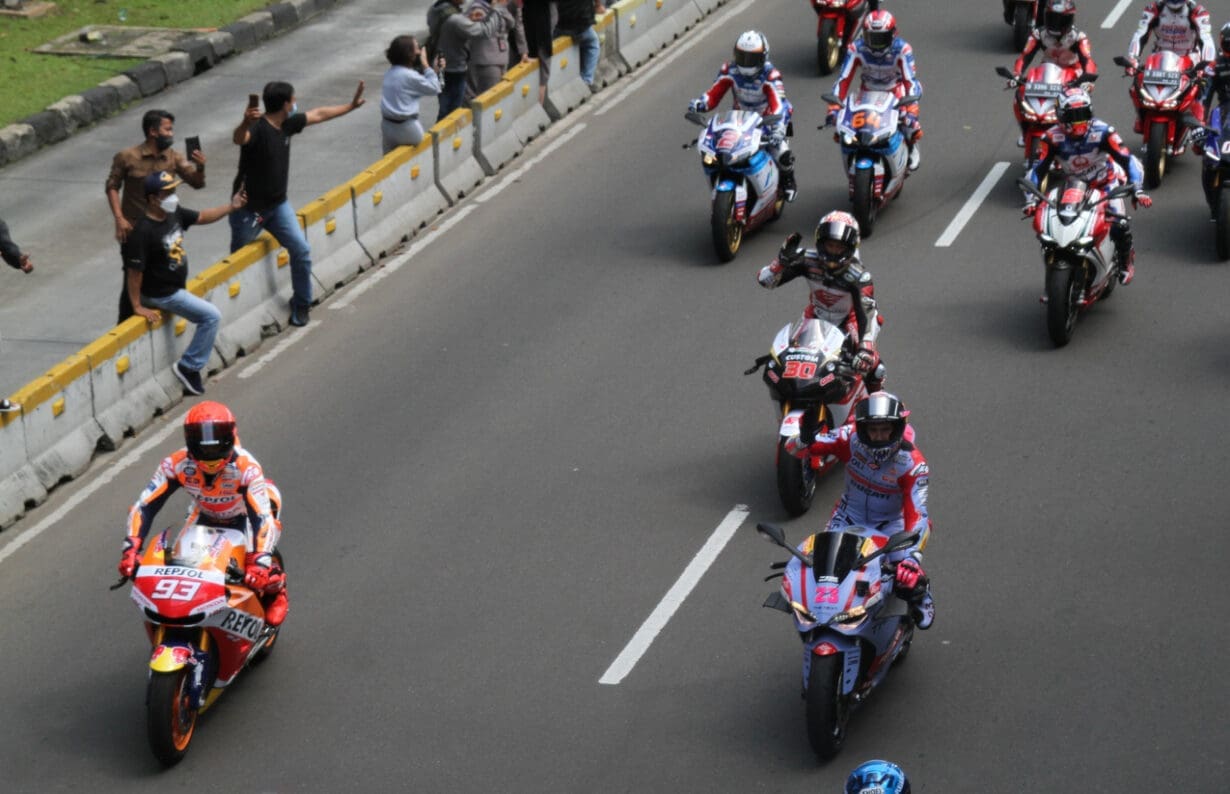We have received payment for the content in this article. Learn more.
Watching a race today, spectators can hear the roars of engines and smell the undeniable scent of burning rubber, but what they will likely miss is the silent revolution happening behind the scenes. Sustainability is not a common discussion in sports circles, but MotoGP seems to be committed to saving our planet.

Why is sustainability important in MotoGP?
A passenger vehicle emits over 4.5 metric tonnes of greenhouse gases every year. That is like sending harmful gases the size of an adult elephant into the sky. Multiply this by the number of vehicles, including motorbikes, and the implications become quite worrying.
The effects of global warming are being felt all over the world. Global warming concerns are directly tied to greenhouse gas emissions from vehicles and industrial activities that use fossil fuels.
This is a big reason why MotoGP is silently evolving to match the global direction of sustainable energy and combustion practices.
Key technologies
Incorporation of biofuels
MotoGP organisers made it mandatory for motorbikes to use E40 fuels in 2024. This means 40% of the fuels came from non-fossil sources. The aim is to have moved to E100 (100% non-fossil fuels) by 2027.
To achieve this, manufacturers have started re-modelling engines to ensure they maintain peak performance but run on biofuels instead of petroleum. Examples of manufacturers keen on this development include Ducati (producers of the Desmo450 MX) and Yamaha. It is expected that consumer bikes will follow suit.
Eco-friendly lightweight materials
Racing in MotoGP needs a vehicle that’s both lightweight and durable. Carbon fibre materials have been the automatic option for quite a while, but the tide is changing. Stakeholders are now shifting attention to low-impact alloys and bio-composites due to sustainability concerns. They are easy to recycle, which means the environment will suffer less, and a biker also doesn’t have to worry about the structural integrity of the bike.
Electric motorbikes
Racing powered by electricity was only an idea before 2019. In 2019, however, MotoGP tested MotoE. The FIM MotoE World Cup would see racers operate fully electric bikes in races. In giving this event the exposure given to MotoGP, it began to draw fans and stakeholders. Currently, it is a fully competitive event. No doubt, MotoE bikes cannot match the refuelling speed or range of combustion engine bikes. However, there are a few takeaways. MotoE bikes offer a better understanding of thermal management and electric drivetrain performance, which can inform developments in the main MotoGP class.
Will sustainability influence MotoGP betting?
Sustainability is likely to have an impact on MotoGP betting as a change in combustion fuels may alter the performance of teams. When speculating, a team’s historical records are an important part of odds analysis. However, a change in fuels and engineering would most likely render such records obsolete. Also, with the emergence of MotoE, the betting market may diversify to accommodate this growing sport for people who bet on sport in the UK.
Manufacturers and challenges
Race organisers such as Dorna Sports are not the only ones talking about sustainability. Teams and manufacturers are not left out. KTM for example, is talking about integrating bio-utilisation and the production of sustainable, lighter bike parts. For Yamaha, the focus is on recycling.
Despite these strides, certain challenges pose potential drawbacks. These challenges are both technical and emotional. There are purists who argue that changes to fuel and engine design could change what they used to know as MotoGP. On the technical aspect, biofuels do not have uniform combustion properties, and the recycling of materials is not economically viable as it is cost-intensive.
The evolution into sustainable fuels has gone largely unnoticed because situations like pit times have largely remained the same. This silent evolution involved going from fossil fuels to non-fossil fuels, which leaves a smaller carbon footprint. It also involved using lightweight materials that are eco-friendly and properly managing tyre waste. Despite current challenges, the evolution is more likely to become permanent as every stakeholder – including manufacturers, organisers and race teams – has demonstrated interest in the drive for sustainability in MotoGP.



